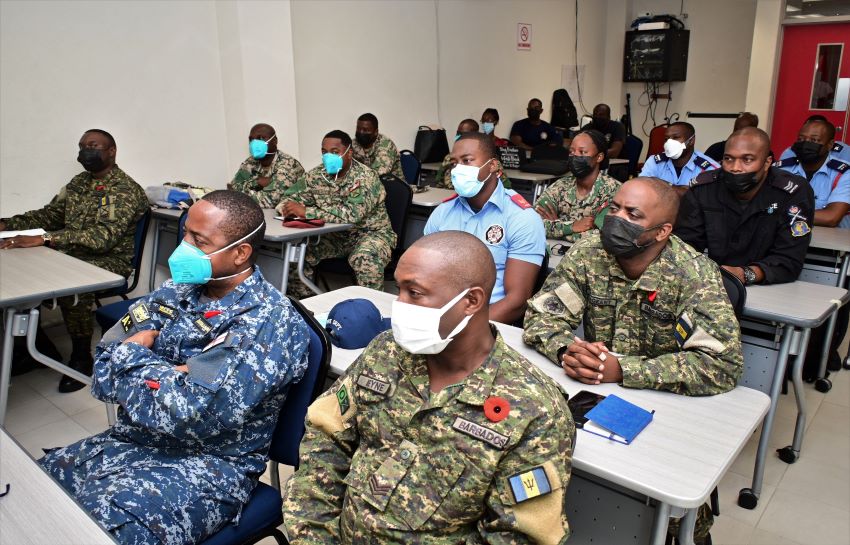
Emergency personnel from Barbados and Antigua and Barbuda are presently undergoing training in Urban Search and Rescue (USAR) to establish common standards within the industry.
This is in keeping with guidelines outlined through a Memorandum of Understanding established between the Caribbean Association of Fire Chiefs (CAFC) and the Caribbean Disaster Emergency Management Agency (CDEMA) in 2020.
Chief Fire Officer of the Barbados Fire Service, and President of CAFC, Errol Maynard, outlined these points during the launch of the Regional Search and Rescue training exercise being conducted at the Barbados Fire Academy from November 7 to 11.
He explained that there was an obligation to not only build capacity, but to also establish common standards across the Fire and Rescue Service and the Emergency Management System (EMS) industry within the Caribbean.
This will enable rescuers to respond to a range of hazards affecting the region such as hurricanes, tsunamis, earthquakes, floods, mudslides, collapsed structures.
During his address, Mr. Maynard noted that the region comprised small independent states, and when one hurt, all hurt. “Therefore, we must have a structured mechanism to help each other,” he said.
Explaining that training together and establishing standards and training would build trust among the responders and improve the level of service provided, he said: “You generally work better with the person that you know, and are familiar with their competencies.”
Mr. Maynard noted that CAFC was in the process of developing a data bank or registry for recording the skill sets in the region and the location of persons with those skills to facilitate the easy deployment of technical assistance when requested.
He added that a similar registry was already in place for the EMS where paramedics and emergency medical technicians can be registered.
Executive Director of CDEMA, Elizabeth Riley, explained that the Regional Search and Rescue (RSAR) training was designed to address areas such as phases, scope, objectives, participants, budget and duration, and build on areas of technical cooperation between CAFC, CDEMA and World Hope International.
She outlined that under phase one the aim was to build RSAR tams in 2022 where OECS teams would be brought together and oriented, practised and exercised in an OECS territory.
This phase is designed to bring together a regional grouping of USAR operatives from Barbados and Antigua and Barbuda to re-orient them to the new methods for USAR. It is also aimed at strengthening or enhancing their national capacity base as part of the Regional Response Mechanism.
Meanwhile, Representative of Global Affairs Canada, Natalie Hutchinson, noted that the training was one component of a project being undertaken by that entity with CDEMA and the Coordinating Unit contributing to a number of areas.
She added that a big area of focus was on strengthening the regional response mechanism.
